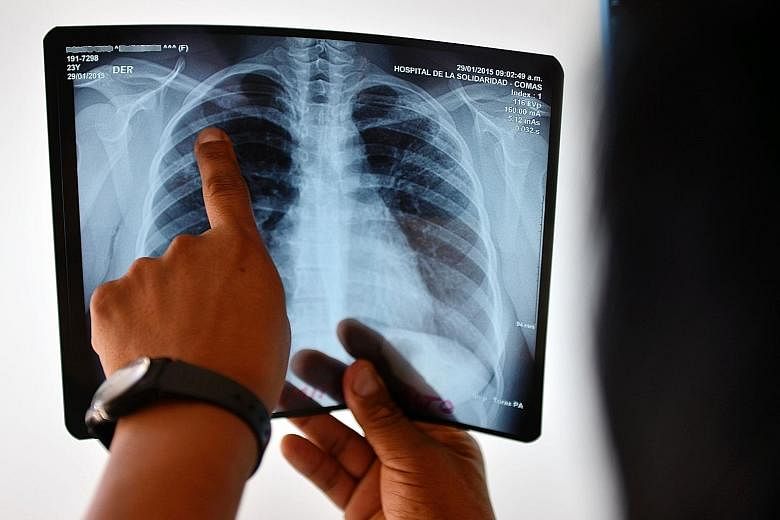Imagine taking medicine continuously for more than six months to treat an infection, even if the symptoms have disappeared.
This is the reality faced by tuber- culosis (TB) patients undergoing directly observed therapy (DOT).
Under this treatment regime, a trained nurse gives the medication - which is free - to a patient and watches as he consumes it. This ensures that patients adhere to their prescribed course of medication.
Patients are monitored for any side effects, such as loss of appetite, tiredness and mild rashes.
DOT is available to all TB patients in Singapore. It can be carried out at polyclinics, dialysis centres and other health institutions.
Last year, 1,617 new TB cases were diagnosed, up 8 per cent from 2015, according to Health Ministry figures.
-
1,617
Number of new TB cases diagnosed in Singapore last year, according to Health Ministry figures
Skipping medication sessions can lead to disastrous consequences.
Professor Sonny Wang, director of the TB Control Unit at Tan Tock Seng Hospital, said that such patients run the risk of a relapse. The unit administers Singapore's national tuberculosis control programme, which includes DOT.
"If the patient is not cured, the disease may emerge again and infect others," said Prof Wang.
"Not only will it re-emerge, it might re-emerge with drug-resistant strains and the second time you use the drug, it may not be effective anymore."
Such strains are collectively called multidrug-resistant TB. Prof Wang described these cases as being "very, very difficult to treat" and patients have to be put on DOT for around two years.
He said many TB cases were discovered incidentally.
"For example, some patients, who do not feel sick at all, are discovered when they go for a routine X-ray prior to a new job."
He added that patients who do not feel any discomfort - or whose symptoms may have subsided before the therapy is slated to end - may be less motivated to continue with the treatment.
But, he said, it would take a "long time before they are cured".
Dr K. Thomas Abraham, chief executive of non-profit healthcare provider Sata CommHealth, said patients need to be given incentives to commit to treatment.
Sata CommHealth renewed its partnership last month with Tan Tock Seng Hospital to give FairPrice vouchers to lower-income patients attending the TB Control Unit.
Since the DOT&Shop programme was started in 2009, nearly 1,400 patients have received half a million dollars' worth of grocery vouchers, said Dr Abraham.
According to a 2015 paper in the Singapore Medical Journal by researchers from the TB Control Unit, the treatment completion rate of patients in the programme was significantly higher than that of patients who did not receive the vouchers.
Dr Abraham said: "These grocery vouchers do help incentivise them to come for treatment."
One beneficiary of the programme is a 55-year-old with two schoolgoing children.
He declined to be named but said: "As I am unemployed, the vouchers come in very handy to buy food and household items."


